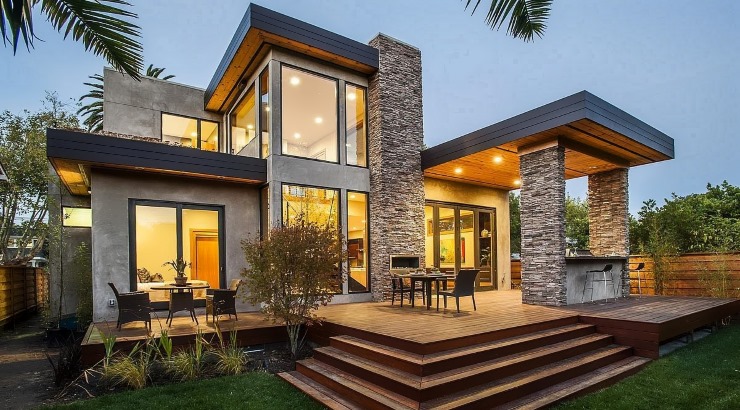Industry News
Prefabulous living: Prefabs gaining popularity in Kenya
Prefabs reduce the time taken to build a house while lowering costs by up to 30 per cent.

Prefabricated building technology is slowly taking off in Kenya as more property developers seek innovative ways to dodge the rising cost of construction.
Modular construction or prefabrication, now considered a crucial technology in addressing housing shortage in the country, reduces the time taken to build a house while lowering costs by up to 30 per cent.
This is due to the fact that the structures, commonly referred to as prefabs, are manufactured in factories in standard sections that are then transported and assembled on-site.
The prefabricated panel materials are made of fibre cement and galvanised steel and are mainly imported from countries such as Turkey, China and the United States.
This shift is welcome for Kenya, whose annual housing demand stands at 250,000 units against a supply of a partly 40,000 units.
READ: Why prefabricated houses are the way of the future
Several companies including Elsek & Elsek, Koto Housing and Mabati Rolling Mills are betting on the cheap building technology as they seek to cash in on the growing demand for housing in the country.
Elsek Construction, which was founded in 2001 in Istanbul Turkey, has introduced fiber cement and galvanized steel construction into local housing sector through its subsidiary – Elsek & Elsek (K) Ltd.
The innovative technology uses walls made of fibre cement boards which are bullet proof up to 9 mm and fire proof up to 800 degrees Celsius. The walls are made of cement, stone and glue chemical for strength and windows are double glass or glazing for high insulation.
STORY: Elsek seeks to provide low-cost housing to Kenyans
According to the company, the technology significantly reduces construction time as it utilises unwelded galvanised steel structures that act as framework upon which covering fabric are made of fibre cement.
Koto Housing Ltd., a Malaysian firm, recently excited the Kenyan real state market when it announced that it could build a three-bedroom house within 14 days at a cost of Sh1.8 million using ‘Koto Building system’.
“In Malasyia, where we are adopting this method from, they have completed a similar house in seven days, but here, we are learning the ropes and hence set the target of 14 days, and we have comfortably done it,” said Moses Nderitu, the firm’s project manager.
READ: Build a house in 14 days with Koto Building System
Mabati Rolling Mills is also riding on the prefab technology by supplying ready-made steel houses whose walls have the option of being completed using iron sheets, wood, bricks or mud depending on the preferences of the customer.
The National Housing Corporation has launched a spirited campaign promoting the use expanded polystyrene (EPS) panels in construction, as it seeks to boost the supply of affordable housing in Kenya.
EPS panels are made of polystyrene (the white, flimsy material used in the packaging of electronic goods) and are considered favourable as building materials in terms of safety and affordability.
“Polystyrene is 90 per cent air, so it is very light and also provides great thermal insulation as air is a poor conductor of heat,” said Andrew Saisi, the GM of the firm’s EPS factory in Mavoko near Nairobi.
The state-owned corporation has already established a factory in Mavoko, near Nairobi, with an annual production capacity of 126,720 housing EPS panels.
Siphila Mumenya, a senior lecturer at the University of Nairobi’s department of Civil and Construction Engineering, affirms that EPS offers high quality building material at cheaper price, lower labour costs and faster construction speed.
“Hower the greatest bottleneck will be the resistance of people to change from what they know [conventional stones and bricks]. Marketing the product will be the real challenge,” Dr Mumenya said.












